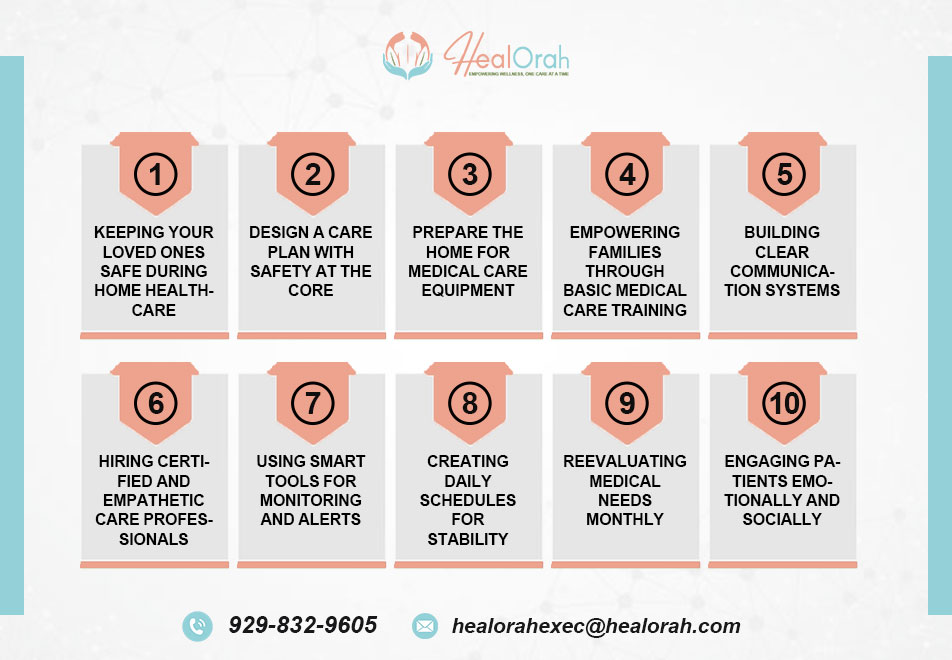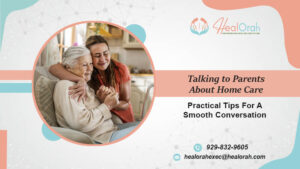More people want home care now. Good home care helps unwell and elderly people stay in their own homes. Home care safety and the cost-effectiveness of home health care Are Issues a lot today. First, make a clear plan. Write down what help the person needs every day.
Table of Contents
ToggleNext, train helpers properly. Good training means enhanced medical care in home settings. Also, I often communicate with my own family. When everyone shares news, care gets improved. Always check for dangers in the house. Fix loose rugs and bad lights fast. Keep the medicine in order. Use boxes with days marked to avoid mix-ups.
Let people do what they can. Help only when they truly need it. Rest is key for helpers too. Take breaks so you don’t get too weary. Buy the effective home care services that you need. This saves money and keeps care costs down. Be kind and listen well. Sometimes just clutching a hand means so much. Watch for small health changes. Tell the doctor about new problems right away.
Keeping Your Loved Ones Safe During Home Healthcare
Start with a Professional Restorative Wellness
First, doctors need to check your family member carefully. They look at all health problems to make a good plan. This step helps find what kind of help your loved one needs at home.
Later, trained helpers can visit your home to give the right care. These helpers know how to give medicine check health signs, and help with daily tasks. Effective home care starts with knowing exactly what your family member needs to stay healthy. Also, using safety tips for home health care workers keeps everyone safe.
Design a Care Plan with Safety at the Core
Every person needs a special care plan. Safety in home health care means watching out for things that might cause falls or other problems. A good plan shows everyone what to do each day.
Moreover, stopping accidents before they happen is very important. Helpers learn what makes each person safe or unsafe. Patient-specific protocols help everyone know what to watch for and how to respond quickly when needed.
Prepare the Home for Medical Care Equipment.
Your home needs enough room for any medical machines. Keeping paths clear helps avoid trips and falls. Additionally, all equipment areas must stay clean to prevent germs.
Furthermore, safe equipment placement makes care easier for everyone. Protection in home health care means thinking about where to put beds, oxygen tanks, and wheelchairs. A clean well-organized space helps your loved one feel better and heal faster.
Empowering Families Through Basic Medical Care Training
Teaching your own family simple medical care creates a strong help system for the one that you love. Simple skills like giving medication effectively and cleaning wounds properly make a big difference. Those abilities assist you in saving small problems from turning into emergencies.
When family members learn to use medical equipment, they experience more confidence in helping. This training builds trust among the patient and everyone involved in their care. Moreover, it ensures care continues smoothly even when professional caregivers aren’t present.
Building Clear Communication Systems
Good communication forms the backbone of effective home care. Many fundamental guides miss this important step. Creating a system where doctors, family members, and caregivers share information prevents mistakes.
Furthermore, clear communication helps everyone understand the care plan. Using simple tools like shared calendars or care journals maintains each person’s knowledge. Additionally, regular family meetings help address concerns before they grow to be problems.
Hiring Certified and Empathetic Care Professionals
Finding the right care professionals makes all the difference in home healthcare. Look for certified caregivers with proper training and proper compassion. Their knowledge ensures your loved one receives proper medical attention.
Besides certification tests for caregivers who join emotionally with patients. Safety training is also essential for home health workers. They should know how to prevent falls, handle emergencies, and hold clean surroundings.
Using Smart Tools for Monitoring and Alerts
Modern technology provides excellent tools for home healthcare services today. These include wearable smart gadgets for tracking movements and vital signs. Moreover, the tablets and smart dispensers can notify patients of proper medication schedule adherence.

Such monitoring systems are often not more expensive than repeated visits to the health institution. These systems allow the physician to check on the sufferer remotely and without the need for travel. This gives a sense of independence to patients while receiving the required medical attention.
Creating Daily Schedules for Stability
Patients greatly benefit from the use of consistent routines as it provides comfort and stability. Every person is made aware of what is happening and when. This is especially beneficial for patients suffering from memory issues and people recovering from surgery.
Standard practices such as setting a specific schedule for meals and administering medication lower anxiety. Routine features that are predictable also help patients notice new changes to their condition. Hence, patients and caregivers gain value from this organized approach.
Reevaluating Medical Needs Monthly
Healthcare requirements shift as time progresses. Clients blast through these well-planned hurdles during the monthly checkups with ease. This demonstrates flexible healthcare strategies.
While planning these reviews, don’t forget to check if the medications are having the desired effect. Evaluating all Checkpoints for observing improved signs and new areas of concern is essential. Adjustments to the care plan should always follow. These points directly connect to effective persistent home care.
Engaging Patients Emotionally and Socially
Talking with patients builds trust and comfort. Friendly chats help people feel less alone during medical care. Simple questions about family or hobbies can brighten a patient’s day. Group activities also bring joy to those in treatment.
Remember, healing involves both body and mind. Medical care works better when patients feel happy and connected. Moreover, kind words and warm smiles are powerful medicines that doctors and nurses can give freely.
Why Families Choose to Heal Orah for Trusted Home Care
Apart from treating patients, It’s important to balance medical care with meaningful and fun activities. Creating a schedule that includes family and friends during patient care visits aids in achieving the intended goals. Ultimately, comprehensive home care caters to both the emotional and physical aspects of healing.
Importantly, medical home care support from Heal Orah means your family member stays comfortable at home while getting proper care. Many people choose their home care assistance because it feels personal and kind. Finally, Heal Orah teaches safety tips for home healthcare workers to ensure the best care possible. Book a consultation with Heal Orah to create your personalized stress-relief plan today!
Conclusion
Maintaining your car at home reduces money and time. Regular cleaning keeps your vehicle looking fantastic for longer. Easy checks like tire pressure help prevent big troubles later. Many people find satisfaction in caring for their cars.
Moreover, studying fundamental maintenance teaches valuable skills. Books and online videos make studying easy for beginners. Always remember safety comes first when working under your vehicle.
Finally, professional mechanics must manage complex repairs. Their expertise ensures proper fixing of serious troubles. Your Effective Home Car care routine will make driving safer and more enjoyable for years.
FAQS
Q. What makes home care a safe and effective option for medical patients?
Home care keeps patients in familiar spaces, lowering stress levels. Regular one-on-one attention from caregivers catches problems early. Modern medical tools now work well in homes, making treatments safer outside hospitals.
Q. How can families evaluate the safety of home health care services?
Check caregiver training certificates and company reviews online. Ask about emergency plans and backup staff options. Visit the agency office to meet managers. Request references from current clients using their services.
Q. What are the key benefits of choosing home care over hospital treatment for chronic situations?
Patients heal quicker in at-ease surroundings with cherished ones close by. Lower infection risks exist at home than in hospitals. Personalized care schedules follow patient needs rather than hospital routines. Cost savings add up quickly.
Q. How do trained caregivers ensure medical safety in home care environments?
Caregivers follow detailed care plans created by doctors. They check vital signs regularly and report changes quickly. Safety inspections remove trip hazards in the home. Proper medicine management prevents dangerous mistakes.
Q. What factors determine the cost-effectiveness of medical home care
Insurance coverage affects out-of-pocket expenses extensively. Service level needs vary based on the patient’s condition. Location impacts travel costs for providers. The length of care required changes the total price over time.
Reference
Mayo Clinic – In-Home Medical Care
NIH – Best Practices for Home Health Safety
CDC – Home Health Worker Safety





